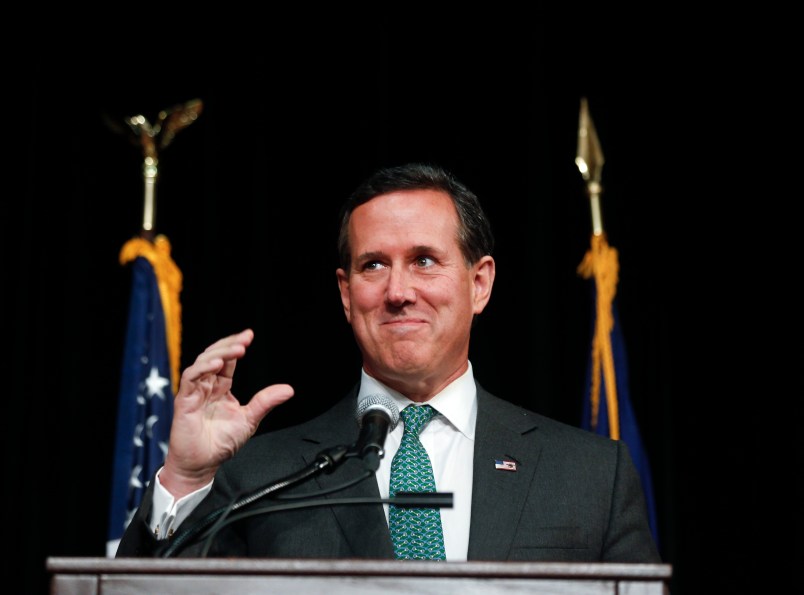I missed this on the first pass. This kind of thinking used to get into the political debate two or three decades ago. But I haven’t seen it in a while. In an interview with The Daily Caller (full transcript here), Rick Santorum suggested that Scott Walker’s opposition to same-sex marriage may be suspect because he hasn’t gotten his wife to fall into line.
Walker’s wife, Tonette Walker, says she disagrees with her husband on marriage equality. She noted that a cousin, Shelli Marquardt is lesbian and is now married to a woman who she has been in a committed relationship with for 18 years. Walker’s son, Alex, was actually a witness at the cousin’s marriage on June 9th of this year.
Santorum says that he’s seen that when a candidate’s wife doesn’t agree with him on sexual politics or sexual traditionalism issues, the candidate tends to ignore the issue in order to avoid “disharmony” at home.
Spouses matter. I saw that repeatedly with Republican presidents. When your spouse is not in-sync with you, particularly on cultural issues, moral issues — what I’ve seen over time is that presidents as well as members of Congress tend not to be as active on those issues. Not to say they are going to change their positions. They rarely to my knowledge change their positions. They tend not to do things that put them out there, fighting this fight, when they know they’re going to… have some disharmony at home.
As I mentioned a few weeks ago, I actually do think there’s a significance to these family disagreements, when the candidates and campaigns seem to go out of their way to highlight them. It seems to be a clear evolution in the politics of gay marriage – it seems to be an intentional way to hedge the issue: maintain a hard line in the candidate’s actual position but widely broadcast that his own family doesn’t agree with him. It is a rather transparent effort to signal to more moderate voters that the candidate himself probably doesn’t feel that strongly about it or perhaps doesn’t even agree with their own nominal position. To paraphrase the president, it’s a way to suggest that the candidate may be “evolving.”






